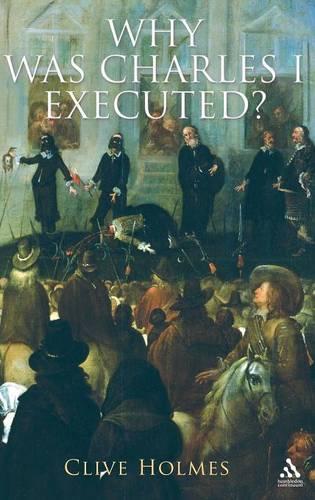
Why Was Charles I Executed
(Hardback)
Available Formats
Publishing Details
Why Was Charles I Executed
By (Author) Dr Clive Holmes
Bloomsbury Publishing PLC
Hambledon Continuum
30th June 2006
United Kingdom
Classifications
General
Non Fiction
941.063
Physical Properties
Hardback
264
Width 156mm, Height 234mm
560g
Description
The execution of Charles I in 1649, followed by the proclamation of a Commonwealth, was an extraordinary political event. It followed a bitter Civil War between parliament and the king, and their total failure to negotiate a subsequent peace settlement.
Why the king was defeated and executed has been a central question in English history, being traced back to the Reformation and forward to the triumph of parliament in the eighteenth century. The old answers, whether those of the Victorian narrative historian S.R. Gardiner or of Lawrence Stone's diagnosis of a fatal long-term rift in English society, however, no longer satisfy, while the newer ones of local historians and revisionists' often leave readers unclear as to why the Civil War happened at all.
In Why Was Charles I Executed Clive Holmes supplies clear answers to eight key questions about the period, ranging from why the king had to summon the Long Parliament to whether there was in fact an English Revolution.
Reviews
'[A] complex story on which Dr Holmes casts a penetrating light.' ~ Nottingham Evening Post, 04/11/2006
Title mention in The Spectator, 2007 * Spectator, The *
'This beautifully constructed book acts as a reminder of how little has truly changed in the orthodox view of the war and Revolution, while so much else has done in our perceptions of history.' ' Dr. Holmes... has a wonderful knack for cuttng through the detail of events to the themes and issues that really matter. The result is a model of clarity, verve and concision, powered by a formidable common sense.' - Ronald Hutton, TLS -- Ronald Hutton * TLS *
Author Bio
Clive Holmes is a leading English Civil War historian. Fellow of Lady Margaret Hall, Oxford.
